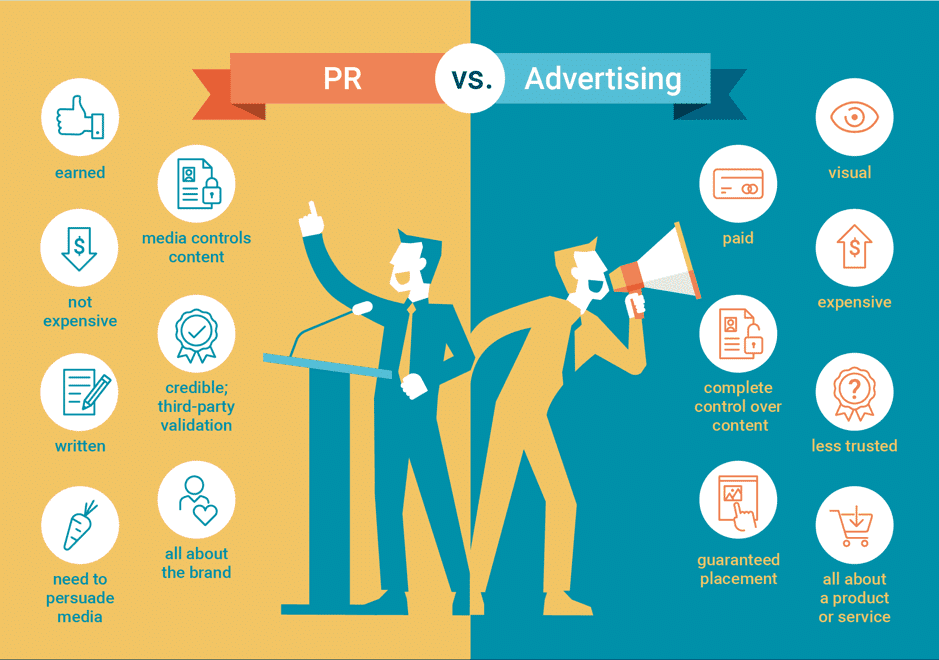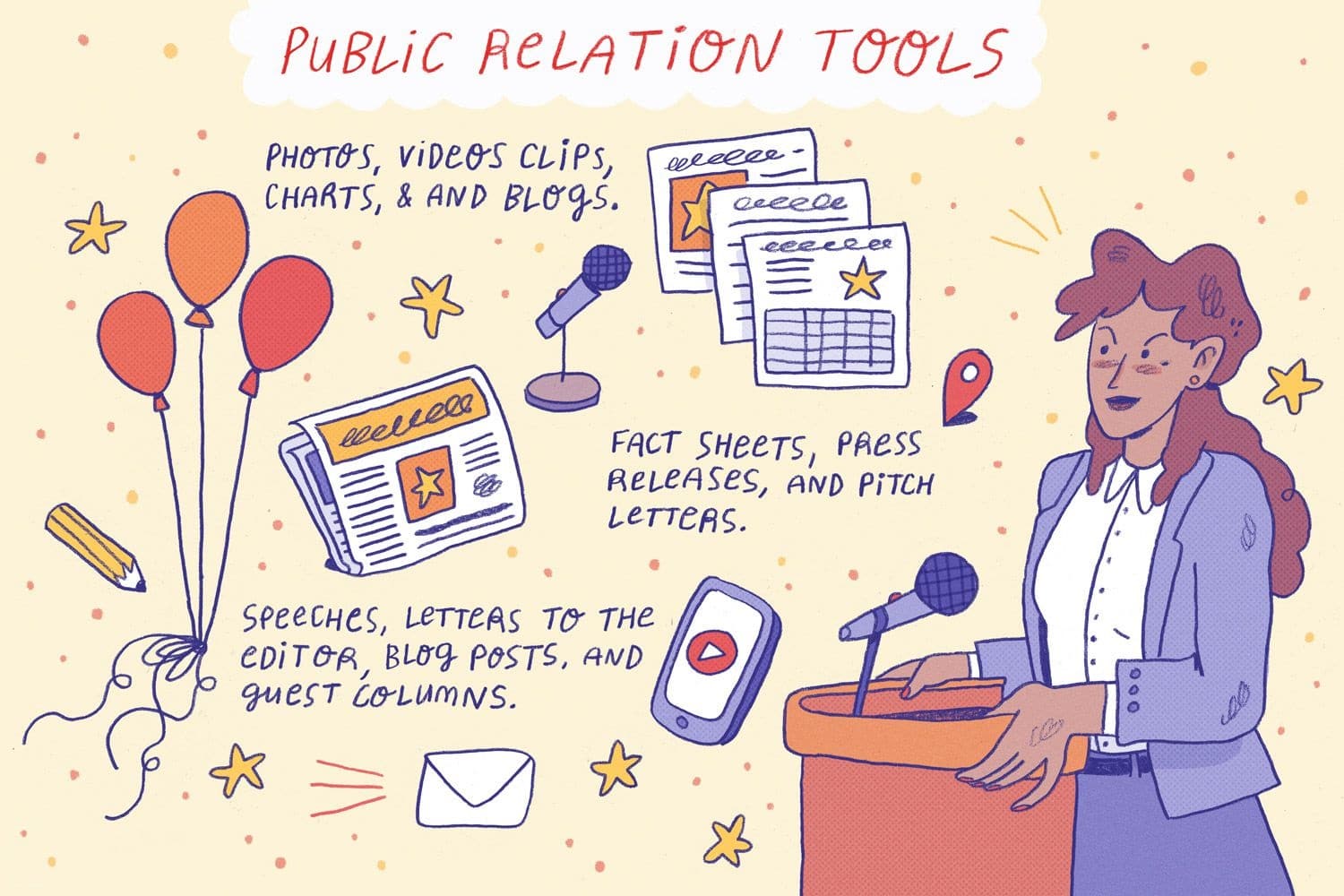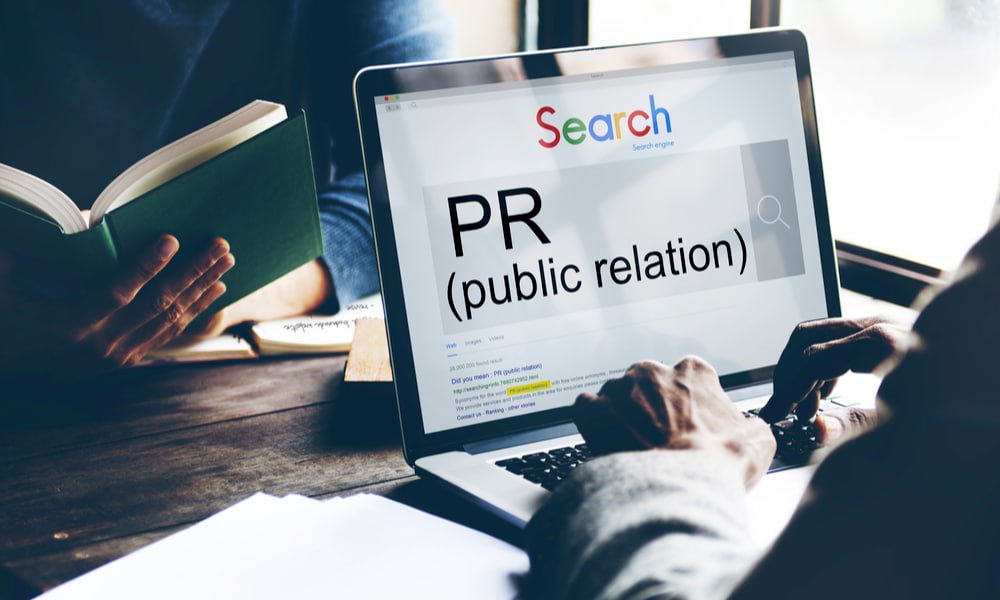
1. Goal Wise Difference Between Public Relations Vs Marketing
When we talk about goals, deliverables, and performance-driven metrics, both PR and marketing adopt a T-Fork junction. For instance:
- If you were to sell a product, create anticipation about the upcoming launch, and manage a positive reputation through different communication strategies with stakeholders, that’d classify as a goal for public relations.
- On the other hand, a marketing team’s goal is to let the customers do the carryout work towards a sales-driven approach. Ever heard about the ‘word of mouth’ marketing expression? That’s what one aspect of marketing is.
Moving on, revenue also plays a key role in defining how much investment is made into public relations vs marketing. PR normally isn’t that much expensive, but full-scale marketing requires a lot of focus and expenses.
Now, you might argue that professional public relations campaigns and media coverage require a lot of fortune to be spent. It is true, but what about earned media reputation through public relations?
In earned media, you do not have to spend a lot of money, or any money because journalists often cite you as a valuable resource and that gets you all the attention from the media. This process is unlike the ‘Paid media’ public relations campaign, which is an entirely different case.
2. Daily Chore/ Tactic Level Difference Between Public Relations Vs Marketing
Moving on, let’s see what the term: “daily chores” in the life of a PR expert and marketing agency entails.
First, we talk about public relations tactics on daily basis. The experts’ focus in this vertical is on:
- Securing opportunities concerning public speaking sessions between a company and its stakeholders
- Manage outgoing messages
- Create and manage press release
- Get in touch with journalists through different platforms for media coverage
- Manage crisis through crisis communication PR, in times of need
- Project an overall positive business reputation and also do reputation management on the side to handle any negative reviews etc.
While most of these activities can be performed by a bunch of public relations agents, many businesses seek to hire professional PR firms to handle everything on the get-go.
- Moving on, here’s what the “daily tactics” list has in store for a marketing department:
- Run advertisement campaigns on different online platforms
- Look to seize online ad placement opportunities on different websites
- Create KPIs to reflect the digital marketing team’s effort, monthly objectives, metrics, number of customers converted – so on and so forth
- Do extensive industry-level research to increase brand outreach and improve sales
That’s not all though. Here’s what the game looks like at the metrics level.
3. Metrics Level Difference Between Public Relations Vs Marketing
Okay, so the metrics portray an entirely different, or sometimes slightly similar picture about what public relations and marketing are looking to derive from a strategy.
Public Relations Metrics

Different awards that have been won during industry events
- Engagement, and the number of positive press work done or generated over the last few years. This metric depends on the timeline, but the idea is to keep tabs on trade publications, broadcasts, and different media outlets.
- What was the overall level of sentiment that you received through PR campaign coverage?
- Engagement-related metrics related to social media campaigns, online collabs with influencers, bloggers, etc.
Marketing Metrics
Now that we talk about marketing metrics, it goes like this…
- Did the social media buzz, viral campaign, or any other sales campaign result in increasing the sales figure?
- What was the overall budget spent on ads and the cumulative ROI?
- Did the sales goals exceed expectations?
- Was the company able to meet the breakeven point for a given marketing campaign?
4. Audiences Level Difference Between Public Relations Vs Marketing
Generally speaking, there is a difference between the audiences that PR and marketing teams develop communications around.
- The audience that Public Relations teams try to reach is virtually limitless. These teams may focus on personalized- or campaign-based outreach to consumers, stakeholders, the media, and even employees
Depending on the current needs of the company, a PR professional could be crafting individualized communications for investors at the same time they are crafting a press release blast.
- The audience that marketing teams try to reach is usually broader in the sense that this group is either addressing either customers or prospects — assuming that the PR team is handling all internal communications
However, the Marketing team may engage in activities like ABM, digital advertising, or email marketing that revolve around segmenting and targeting specific groups of either prospective customers or existing ones.








